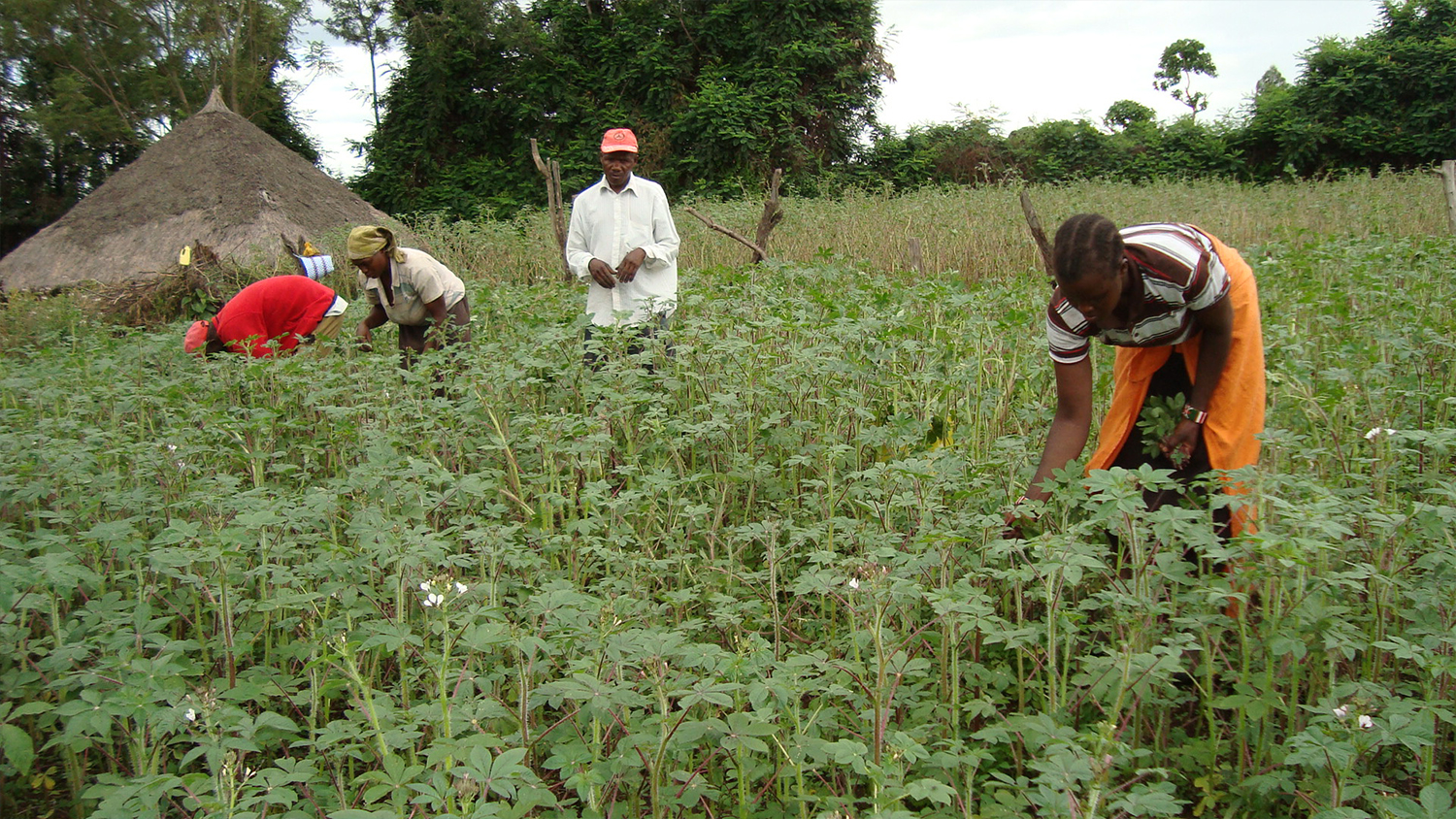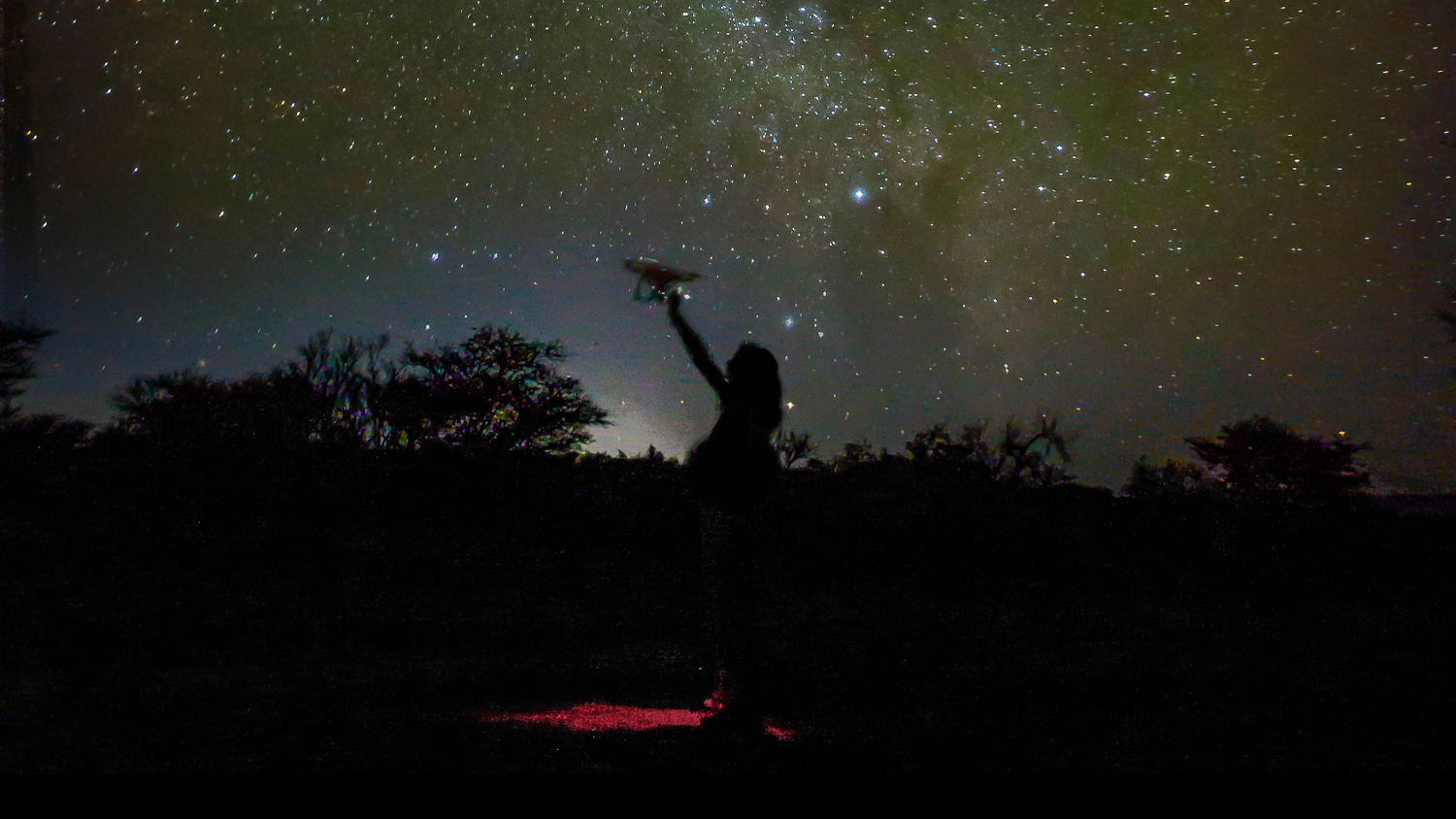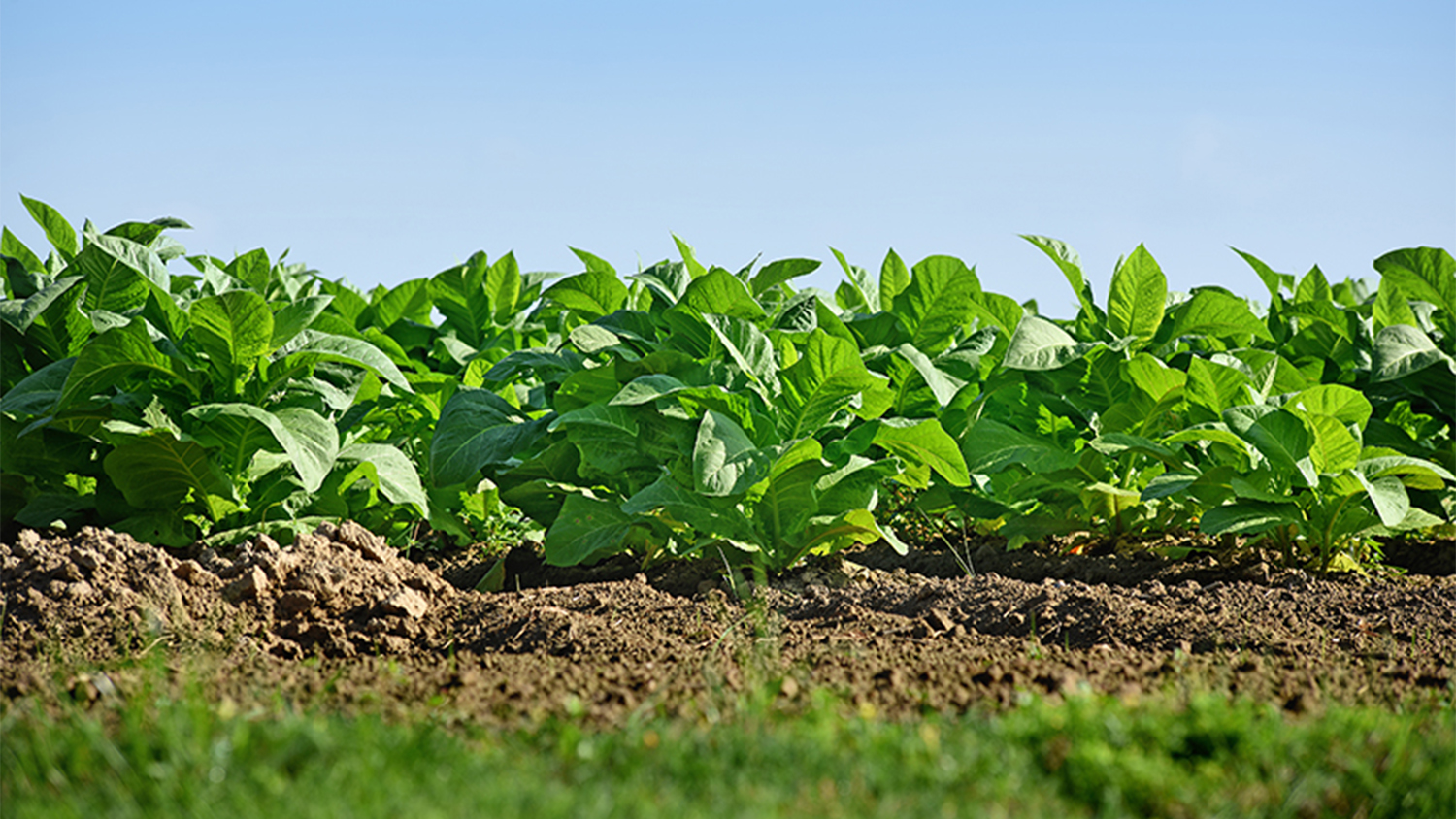Avocado and corn make an unlikely, but highly successful, pair. Turn Mexican avocados into guacamole, and you increase the demand for U.S. corn chips. And with more corn chips, you increase the market for avocados.
In other words, a good year for Mexican avocado growers translates into a good year for U.S. corn chip producers.
As Jose Cisneros, the CALS International Programs director, says, “It doesn’t matter how you look at it—from here to there or from there to here—our economies are linked and we depend on one another.
“It’s a beauty to see how the economy and entrepreneurship can be developed here based on ingredients we don’t grow here—things like the beans used to make coffee and chocolate.”
And, he adds, it’s a beauty to see how NC State’s education, research and Extension programs work in North Carolina and abroad to spur economic growth, improve quality of life and prepare students for careers that span borders.
To achieve those results, CALS faculty members forge collaborations with industry, governments, research institutions and nonprofit organizations, working on every continent except Antarctica.
Such projects have helped farmers in developing nations manage plant diseases and insects that harm life-sustaining crops; determined the toll that climate change is taking on rice, one of the world’s most important crops; improved nutrition; trained graduate students in advanced scientific technology—and much more.
Where in the World is CALS?
Collaborating with scientists on six continents, CALS researchers are finding solutions to problems, benefiting North Carolinians and people worldwide. Read the 6 maps in this story to learn more about a research highlight on each continent.
Potato Pest
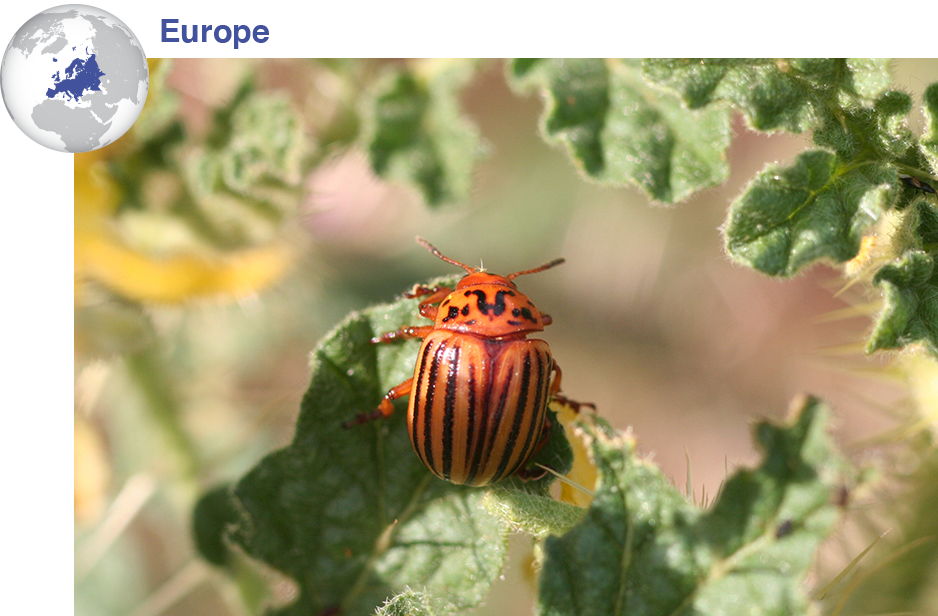
“Our research question is important, and we also think that we can make an impact with additional interactions with the University of Zagreb and potential student exchanges.”
– Anders Huseth
The Problem
Colorado potato beetles are one of the potato’s biggest foes. The increasingly pesticide-resistant insects destroy leaves—and if they attack before the underground part we eat is formed, they can kill a farmer’s entire crop. That’s important because the potato is the world’s fourth-most-important food crop and generates $350 million in annual income for North Carolina farmers.
The Partnership
With researcher Renata Bažok at the University of Zagreb in Croatia, CALS entomologist Anders Huseth is using advanced mapping and analysis tools to better understand how the intensity of potato production relates to how pesticide resistance is evolving in Colorado potato beetles in the Eastern European country.
Bažok has collected data on the beetles, and Huseth—a Colorado potato beetle expert—is helping analyze it to determine and document approaches that could prevent resistance. The researchers expect to see a relationship between the scale of production, or field size, and the likelihood of detecting beetles’ resistance to commonly available insecticides.
The Impact
Huseth and Bažok’s research will shed light on resistance not only in Colorado potato beetles but also in other pests. Resistance is a growing problem worldwide, with over 600 species of pests becoming more and more tolerant of chemical pesticides. That limits farmers’ options for managing insects—which can lead to higher economic and environmental costs, Huseth says.
They Call it a ‘Win-Win’
International collaboration also works for NC State and the people it serves in North Carolina.
Rick Brandenburg has seen that first-hand. He’s a longtime NC State Extension specialist who recently joined the international programs office as associate director of global extension.
“Through my international work over the last three decades, I’ve developed networks with other international researchers and learned from them,” Brandenburg says. “And I’ve been able to learn more about peanut production under a variety of environments and use that knowledge to enhance my Extension programs for growers in North Carolina.”
Cisneros puts it this way: “What you learn outside will make you a better scientist, a better educator, and a better Extension agent here. You learn a lot when you’re outside—different angles to solve problems. Without that experience abroad, you are limited to your own local experiences.”
Brandenburg points out another advantage. Funding from federal and foreign governments for international programs often supports domestic research that helps solve problems for N.C. growers.
“In the last 20 years, 90% of the support for U.S. graduate students in my program working on North Carolina pest management problems on peanuts have been funded by international projects,” he notes.
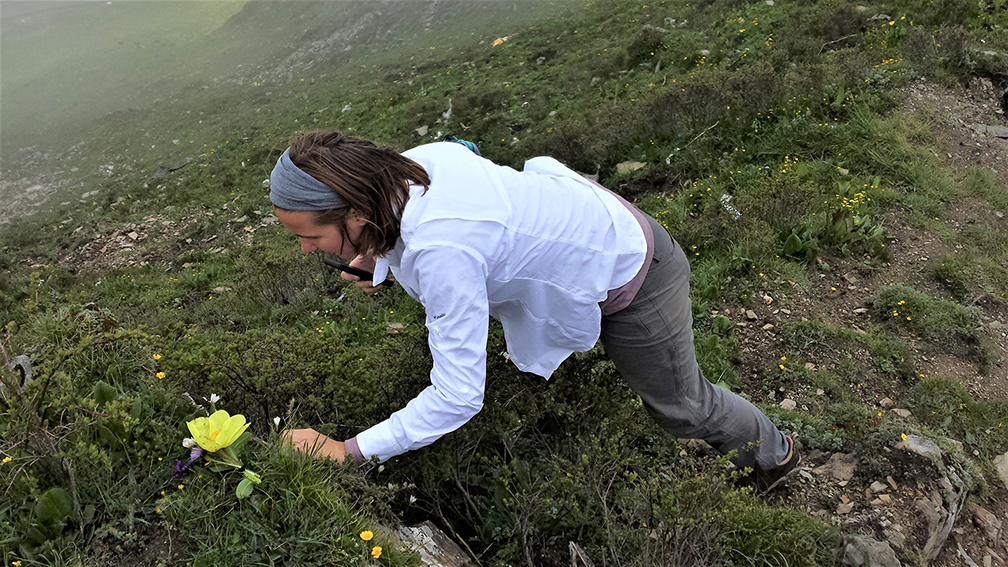
Just as important, Cisneros says, is the fact that CALS’ international work can indirectly help farmers and agribusinesses gain access to export markets.
“If you want to sell your products outside, you need the market to know you first. If you want to sell your swine and your poultry and your sweetpotato, you will get a better response if the buyer knows about North Carolina agriculture—its quality, its technology and its connections to a leading agricultural university.”
Conducting international research, he says, builds trust that’s essential to creating new export markets—and many times results in a premium price for U.S. products.
Big Bee Issue

“Some research on colonies in the Eastern United States has shown that when a queen fails or is superseded, that colony has a three times higher risk of dying.”
– Allison McAfee
The Problem
In the United States and Canada, honeybee health has declined over roughly 20 years, with beekeepers losing about 25% to 40% of their colonies annually. And queen bees—the only female bees that can reproduce—are failing faster in their ability to reproduce.
“Beekeepers have identified problem queens as a top management concern, but what’s causing the problem is largely invisible. Queens go bad, and we don’t know why,” says David Tarpy, a CALS entomologist.
The Partnership
Working with Tarpy and researchers at the University of British Columbia in Canada, postdoctoral researcher Alison McAfee uncovered clues about what’s behind queen bee failure. She found that when more of the queen’s stored sperm were dead, the queens produced more proteins used to fight off infections. That suggests that queens make a trade-off between maintaining stored sperm and fighting infections.
Initial surveys point to viruses as a potential cause of queen failure, so Abigail Chapman, a Ph.D. student in British Columbia, collected queens, other honeybees, and parasitic mites to find out which viruses might be hurting the queens. Her recent experiments focus on how different viruses affect the queen’s ability to lay eggs.
A partnership with the British Columbia Bee Breeders’ Association has been instrumental in the research, as has support from private donors and Hives for Humanity of British Columbia. The researchers are also working with two Canadian queen bee suppliers and the University of Lethbridge in Alberta, Canada.
The Impact
“The more we can find out about what is actually happening within these failed queens, the closer we can get to understanding why this queen failure is happening in the first place,” notes McAfee, who works for both NC State and UBC.
Tarpy adds that the findings could allow scientists to find the precise cause of queen failure and to identify molecular tools that could help identify bad queens before beekeepers use them.
Maintaining the Momentum
To keep mutual benefits coming, CALS’ International Programs office coordinates and supports the interests and efforts of faculty members and students from here and from other countries.
In addition to the work it does to build on university study abroad programs, the office helps faculty members coordinate visits from international scholars and scientists. These visitors come with the intention of gaining and sharing new expertise and skills.
The office has a small staff: Adrienne Tucker serves as assistant director, overseeing and managing initiatives aimed at increasing global engagement.
Farzana Halim hosts training sessions for international professionals, develops grant proposals and special projects, and more. She also coordinates activities for a program called Connecting Research, Education and Outreach—or CREdO—which helps developing countries grow and coordinate their research, education and Extension programs.
And Lindsay Naumann is program assistant for CALS’ Global Academy, which offers advanced, customized agricultural training programs for researchers and professionals from all over the world—both in-person and online. She also manages graduate students who help carry out training programs and act as cultural ambassadors for visitors.
Vital Food Crop

“If we don’t help people in countries like Tanzania or Kenya with challenges like hunger and poverty, then we could face serious downstream political consequences. In the end, this work is important for guaranteeing the future of how humans on this planet live.”
– Linda Hanley-Bowdoin
The Problem
Called the food of the poor, the potato-like vegetable known as cassava is the third-most important source of calories in the tropics. However, cassava mosaic disease can devastate a farmer’s crop, contributing to income loss and hunger.
The Partnership
NC State scientists have worked with scientists from eastern Africa for over a decade to find out more about the geminiviruses that cause the disease and how damage might be prevented or managed.
The National Science Foundation and the Bill & Melinda Gates Foundation have provided millions of dollars for the research.
CALS plant virologists Linda Hanley-Bowdoin and Trino Ascencio-Ibáñez have collaborated with Joseph Ndunguru of the Tanzanian Agricultural Research Institute-Selian, as well as scientists from the Biosciences eastern and central Africa-International Livestock Institute Hub (Be-cA-ILRI), and engineers at the University of Manchester in the United Kingdom.
While the NC State researchers have shared information about their scientific techniques, those from Africa have offered their knowledge of the disease and local farming methods and sent plant samples that the NC State researchers analyze. Together, they have identified DNA molecules that make cassava mosaic disease symptoms worse and break resistance to the viruses.
The Impact
Knowing which varieties contain the resistance-breaking molecules could speed efforts to breed varieties that grow well and maintain resistance to cassava mosaic disease. A novel source of geminivirus resistance recently identified at NC State may also help overcome cassava mosaic disease.
What the scientists have learned could help find ways to deal with geminiviruses in sweetpotatoes, tomatoes and other crops, benefiting farmers in North Carolina.
International Programs in Action
CREdO is a unique International Programs’ offering.
“Governments in the developing countries identify the programs and policies that are important to them, and these priorities drive the partnership,” Cisneros says. “NC State’s role is to open the door for incorporating CREdO principles that can lead to sustainable progress.”
After years of experience working in international agriculture, Cisneros came to understand that “for countries with impoverished rural populations, the only way to develop their economies and improve people’s well-being in a sustainable manner is through the investment, development and connection of their research, education and Extension systems.”
The program, Cisneros adds, “is also about connecting the other three pillars of development—government, private sector and academia.”
Cisneros and other CALS faculty members are pushing the CREdO concept in Kenya. In recent years, they’ve built a partnership with the Kenyan Ministry of Agriculture, the Kenya Agricultural and Livestock Research Organization, the Kenya Marine and Fisheries Re-search Institute and the University of Nairobi. They’re looking for grant funding to support programs to help and empower small-scale farmers—mostly women—and their families.
“National and local governments, as well as the private sector, communities, farmers—they all know well what their problems are, they know what to grow, what is demanded by locals and neighboring towns,” Cisneros says.
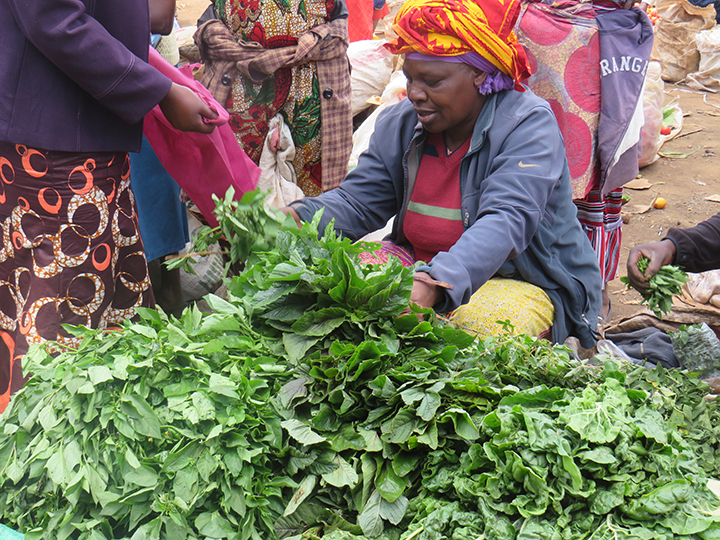
The challenge, he says, is creating functional systems “that will allow them to systematically solve their problems and elevate the value chain of agricultural products to a reasonable level where all players win.”
Fruits and Better Health

“By working internationally, we can better understand the needs of the people
in different parts of the world, and we can try to develop not only solutions to improve the economy and the health of people in one geographical location but also solutions with the potential to work for everyone.”
– Slavko Komarnytsky
The Problem
Eating high levels of natural, bioactive chemicals in fruits and vegetables seems to help protect people from all sorts of ailments—cardiovascular diseases, osteoporosis and diabetes, among them. But we don’t yet know precisely what it is about these compounds that make them particularly healthy, a key to understanding how to preserve and enhance their nutritional value.
As CALS food scientist Slavko Komarnytsky notes, “In the last hundred years, our diets lost a lot of the minerals, the vitamins, and the plant secondary metabolites, like phenols, which affect our long-term health.”
That’s because some modern food processing methods—for example, the way food processors turn oranges into tasty orange juice—reduce phenols because they can be bitter, he says. And as scientists have developed new plant varieties, they’ve tended to focus on yield, disease resistance, shelflife and taste—not nutritional value.
The Partnership
Komarnytsky, Karen Charlton at Australia’s University of Wollongong and Odette Shaw of the New Zealand Institute for Plant and Food Research are working together to find out which of 8,000 known phenols—antioxidants associ-ated with better human health—are the most important and available to consumers. Komarnytsky is focusing on wild and farm-grown blueberries, while the New Zealand and Australia researchers are eyeing cherries, prunes, black currants and boysenberries.
The University Global Partnership Network, which includes NC State, provided funding to set up the collaborative research.
The Impact
Findings from this international collaboration “will drive and substantiate the future policy shifts by different stakeholder groups, by suggesting the best phenolic targets for agricultural breeding programs, food processing and manufacturing industries and by direct messaging to the public about the most effective ways to manage their metabolic and immune health,” Komarnytsky says.
Peter Ojiambo, a CALS plant pathologist who was born in Kenya, says that Kenyan and NC State scientists have developed two plans as part of CREdO.
One project relates to growing and marketing Spider plant and Amaranthus, two
African indigenous vegetables that are high in micronutrients, such as vitamins
A and C, and that possess compounds believed to enhance human health. Researchers want to identify which local varieties of these plants are well-adapted to local growing conditions and are high in micronutrients.
“Micronutrient deficiency is a major, major problem in Africa, but these two indigenous vegetables are a good, cheap source of micronutrients and thus suitable tools to combat food insecurity,” Ojiambo says. “And if farmers can get access to the market and especially local supermarkets and the export market in Europe, they can fetch a premium price.”
The project also aims to increase demand for the vegetables by working with local chefs to incorporate them into tasty, nutritious dishes.
The second proposed project involves improving tilapia production. A popular fish in Kenya, tilapia was once a mainstay of Lake Victoria’s fishing industry. Overfishing and a noxious aquatic weed known as African hyacinth blocks fishing boats and depletes the amount of oxygen in the water, which tilapia need. As a result, farmers are turning to aquaculture to maintain steady production.
Tilapia growers in Kenya face a problem, though. When fish eat feed that’s contaminated with aflatoxin, people who consume the fish can become sick. Farmers often use corn and sorghum as a carbohydrate source for their fishmeal, and under certain conditions, fungi on the crops can produce aflatoxin.
Ojiambo says that this makes access to quality fishmeal critical for sustainable tilapia production for improved food security.
“In Africa, the women and the youth—particularly women—are the ones responsible for making sure that families are fed and food is being grown on the farms and brought to market,” Ojiambo says. “And doing both at a small scale and with limited resources is challenging.”
Dogwood’s Relatives

To protect biodiversity, we must first understand biodiversity–we must know what’s out there.” – Qiuyun “Jenny” Xiang
The Problem
As a famous adage goes, to create the future, we must understand the past. And plants—a source of food, feed, fiber and fuel for the world—have a history worth knowing. That’s especially true, says CALS plant biologist Qiuyun “Jenny” Xiang, as climate change alters plant habitats and threatens agriculture around the globe.
The Partnership
Xiang, who grew up in China, has spent 32 years studying, teaching and conducting research in the United States. Her work largely focuses on the state flower, the dogwood, and its cousins. With partners in China and the United States, she uses molecular genetics to understand the dogwood, as well as plant diversity, relationships and evolution.
With scientific colleagues at Zhejiang University and Zhongshan University, Xiang leads a study abroad program that brings NC State students to China and Chinese students to North Carolina. NC State students take part in lectures and field trips to famous mountains in China. While they study botany, ecology and biogeography, they also learn more about Chinese culture.
The Impact
In part because of her international work, Xiang was recently named a distinguished fellow of the Botanical Society of America.
Although the COVID-19 pandemic has created an uncertain future for her 13-year-old study abroad course, it’s already had lasting benefits. Some of Xiang’s students have gone on to work internationally and some maintain ties with Chinese students from the program.
Xiang says professionally and personally enriching relationships are key to collaborative problem solving needed for global challenges such as climate change.
The Right Stuff
Ojiambo projects passion for the Kenya project.
“I have a soft spot for NC State and for Kenya. I’m very committed and vested in the implementation of these projects so that we can make progress and have an impact, both here at NC State and there in Kenya,” he says.
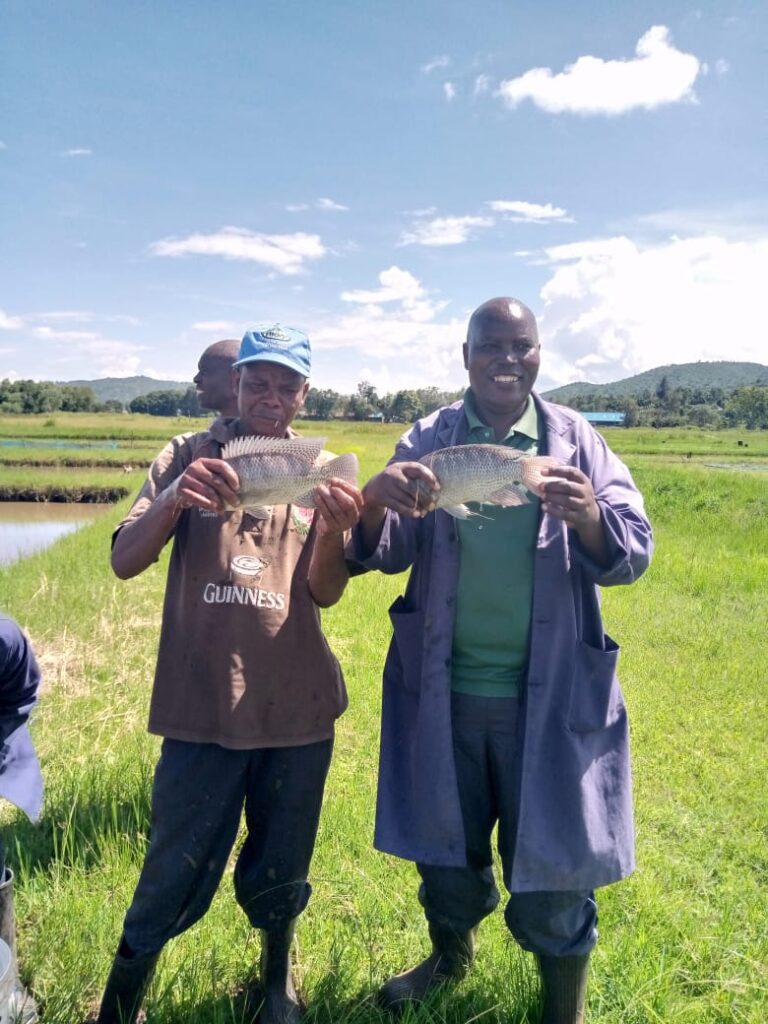
Cisneros thinks this progress will not only benefit people but also raise NC State’s stature around the globe.
“To be a world-class university, you need to have an impactful international presence,” Cisneros says. “As one of the best agricultural and life sciences colleges in the world, we can have a huge impact with other universities and research institutions around the world by solving problems in agriculture, food, nutrition and the well-being of rural communities.
“And that,” he adds, “is simply the right thing to do.”
Advancing Peruvian Agriculture

I look forward to the day when NC State, my alma mater, is widely known in my home country for its strengths in nearly every aspect of agriculture, and my country is advancing its capabilities in agricultural research, Extension and education at a faster speed than it could reach on its own.” – Susana Milla-Lewis
The Problem
As a famous adage goes, to create the future, we must understand the past. And plants—a source of food, feed, fiber and fuel for the world—have a history worth knowing. That’s especially true, says CALS plant biologist Qiuyun “Jenny” Xiang, as climate change alters plant habitats and threatens agriculture around the globe.
The Partnership
Xiang, who grew up in China, has spent 32 years studying, teaching and conducting research in the United States. Her work largely focuses on the state flower, the dogwood, and its cousins. With partners in China and the United States, she uses molecular genetics to understand the dogwood, as well as plant diversity, relationships and evolution.
With scientific colleagues at Zhejiang University and Zhongshan University, Xiang leads a study abroad program that brings NC State students to China and Chinese students to North Carolina. NC State students take part in lectures and field trips to famous mountains in China. While they study botany, ecology and biogeography, they also learn more about Chinese culture.
The Impact
In part because of her international work, Xiang was recently named a distinguished fellow of the Botanical Society of America.
Although the COVID-19 pandemic has created an uncertain future for her 13-year-old study abroad course, it’s already had lasting benefits. Some of Xiang’s students have gone on to work internationally and some maintain ties with Chinese students from the program.
Xiang says professionally and personally enriching relationships are key to collaborative problem solving needed for global challenges such as climate change.
More from Fall 2021: A Global Perspective
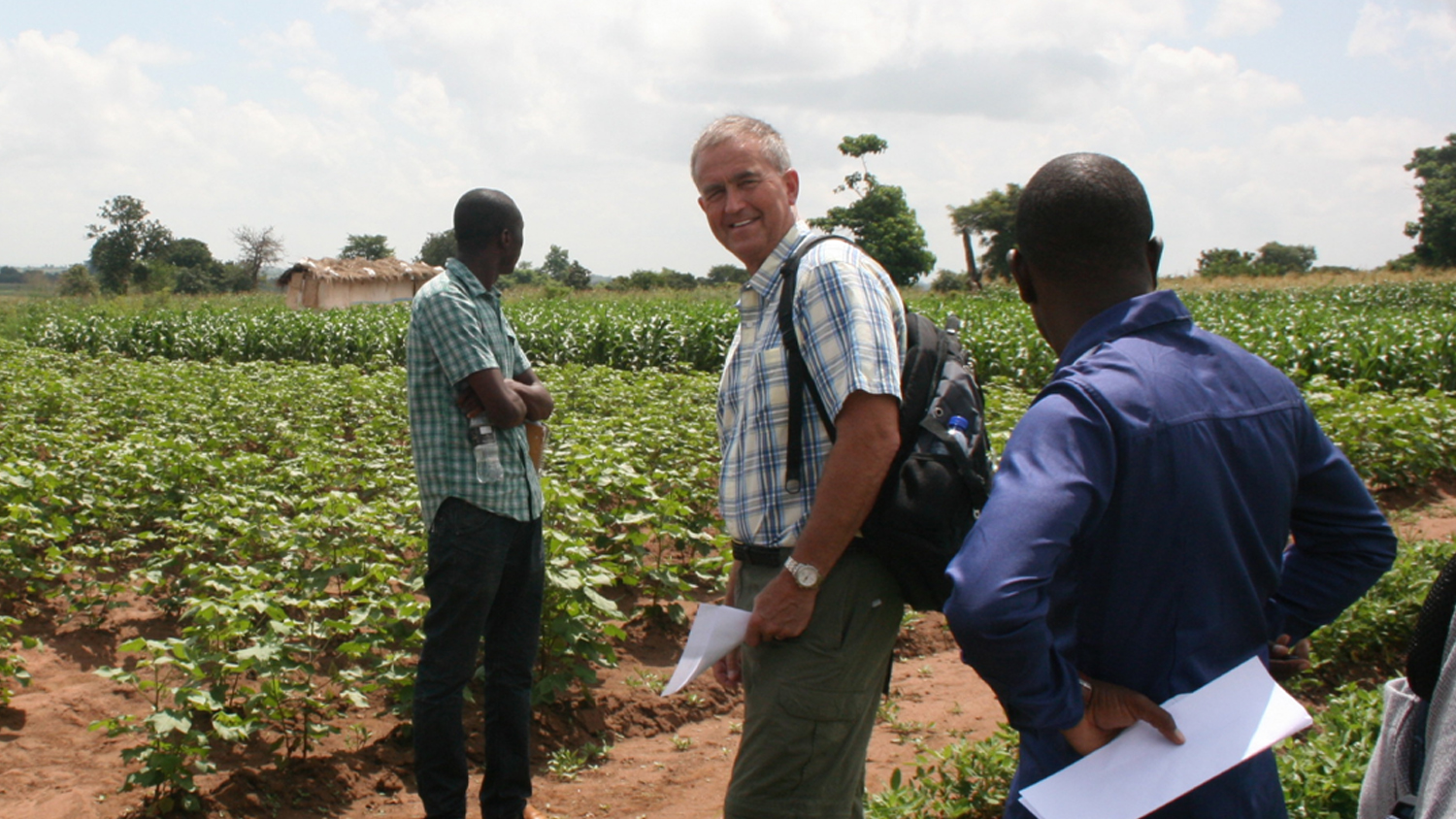
I AM CALS: Rick Brandenburg Serves Farmers in N.C., 50 Countries
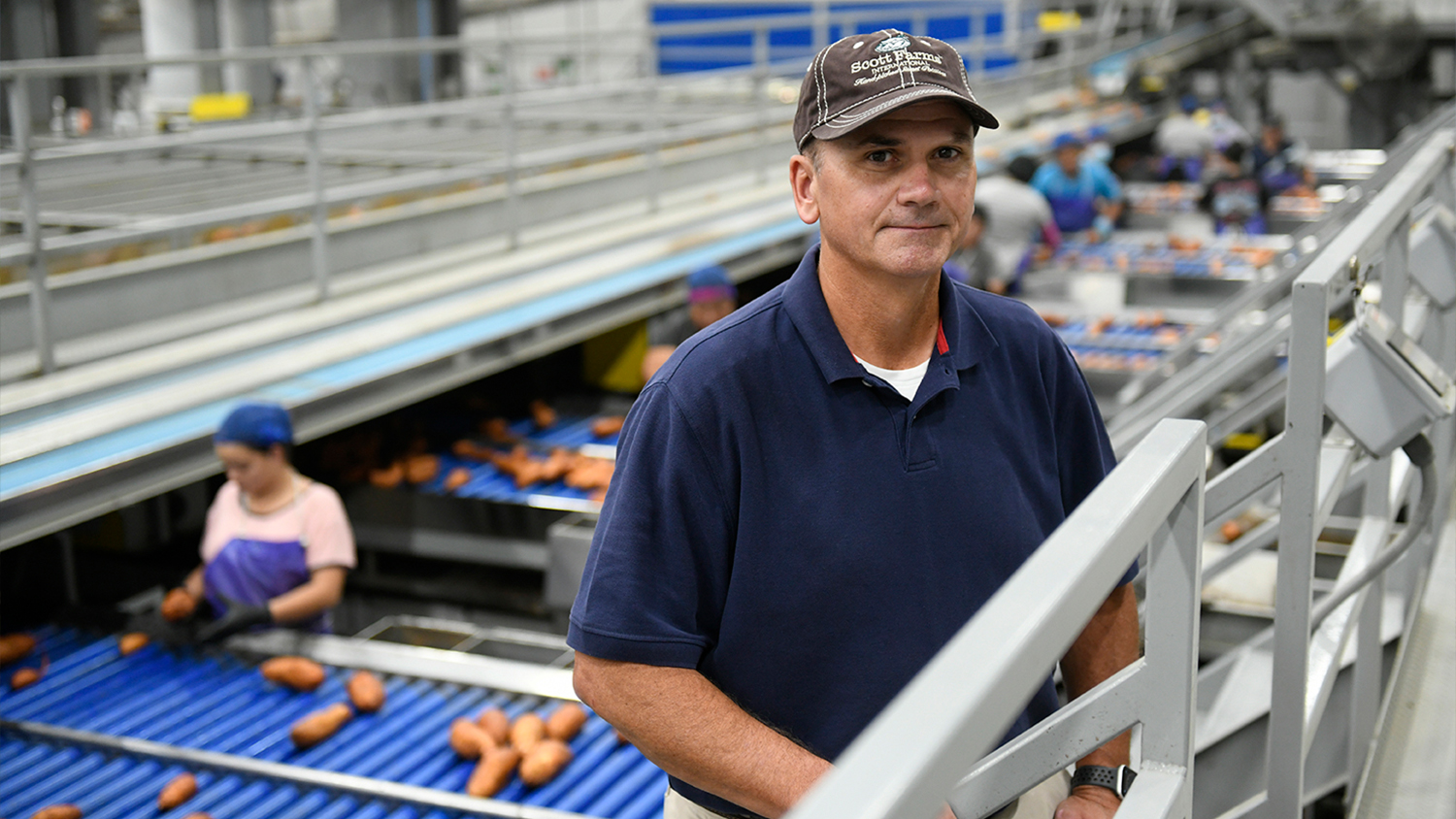
North Carolina’s Export Niche Grows
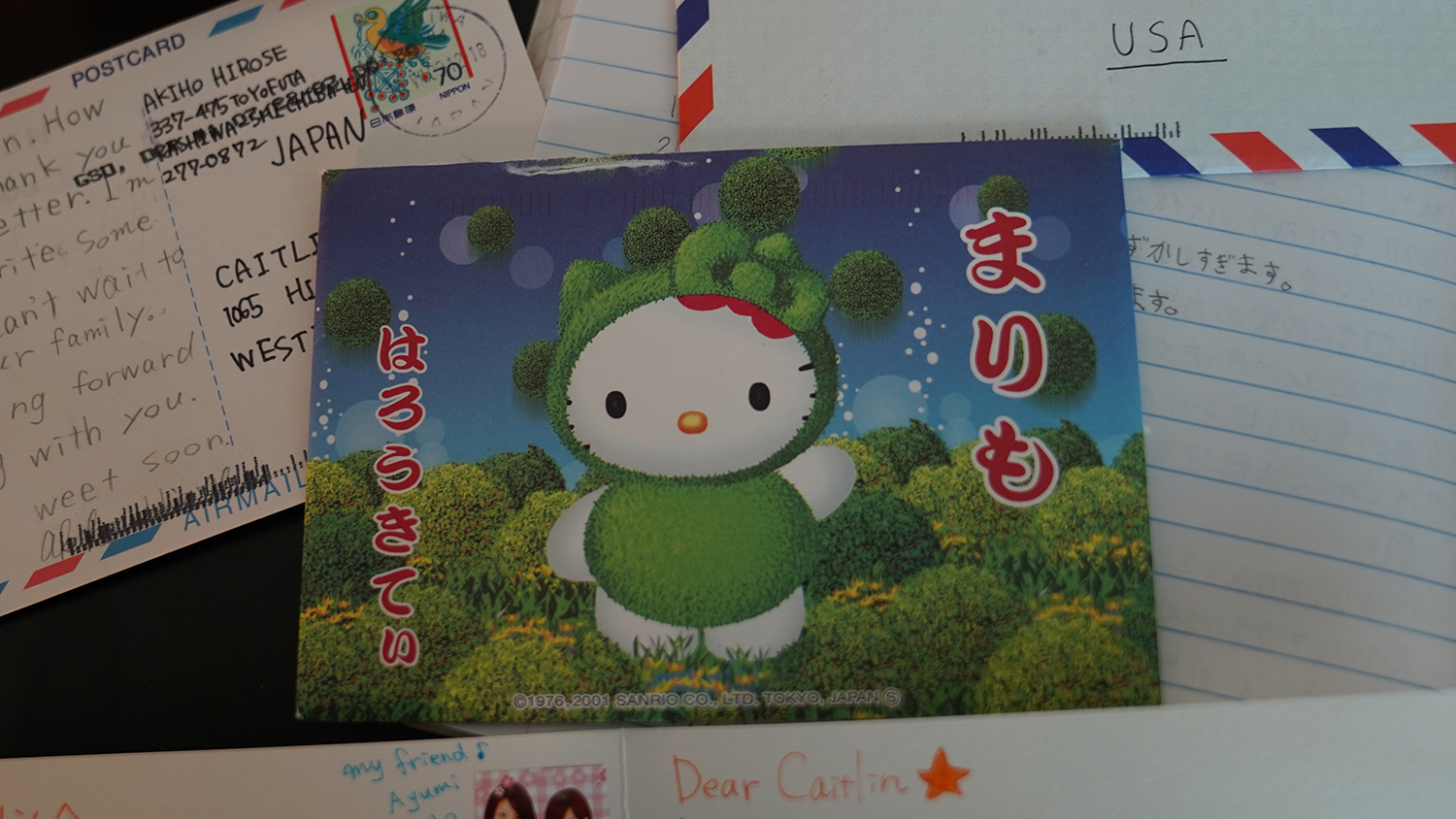
4-H Exchange Offers Experiences of a Lifetime
- Categories:
